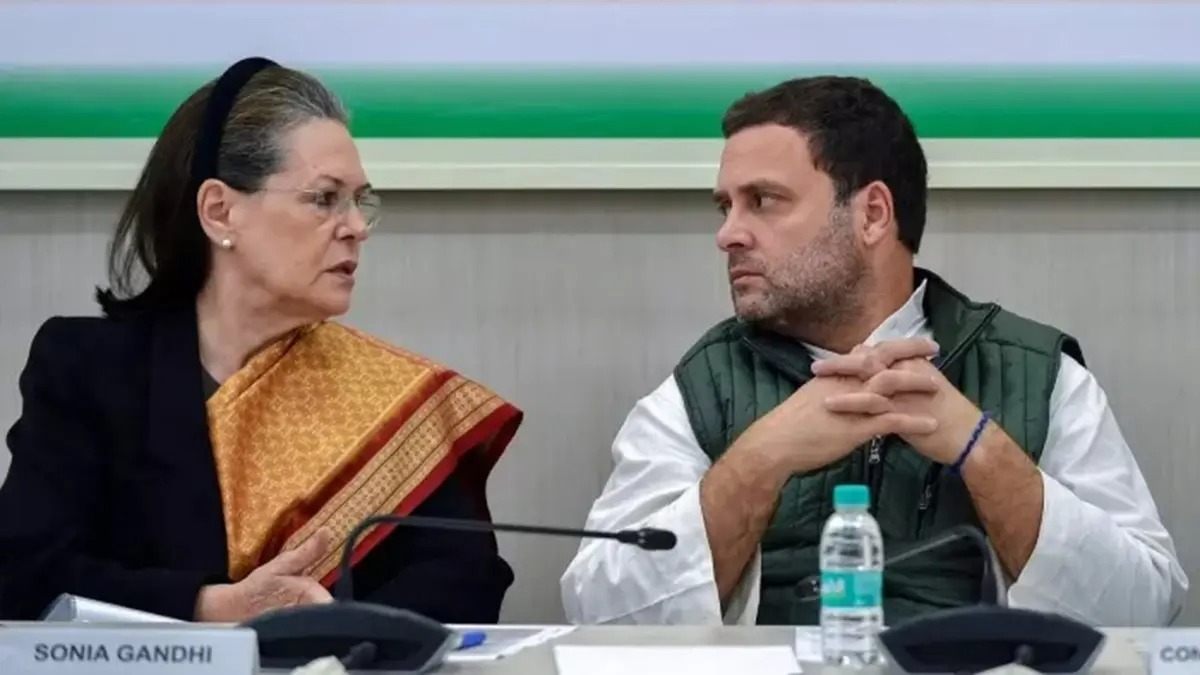Caste Census: Surendra Kishore. Top Congress leader Rahul Gandhi says that we will definitely conduct caste census and on the basis of the data obtained from it, we will give reservation to caste groups as much as they need. He says that if we come to power, the maximum limit of 50 percent reservation set by the Supreme Court will be abolished. Even if Rahul's party comes to power, will it be able to do this?
This does not seem possible, because there is a powerful Supreme Court, which reviews any such decision under the principle of 'basic structure of the Constitution'. However, Rahul Gandhi is telling people that we will send you to the moon, which means that he wants to deceive the people and take their votes.
In 1969, Prime Minister Indira Gandhi gave a similar excuse, which proved to be wrong. She said we will eradicate poverty. She would probably have been right if she had said that if we reduce poverty, people will not fall into its trap.
Soon after independence, Prime Minister Jawaharlal Nehru ordered that black marketers be hanged on nearby lamp posts. His statement had a positive impact on the public. People hoped that now there would be relief from corruption, but what happened after that? Soon after independence, when Pakistan invaded Kashmir, the Indian Army faced a huge shortage of jeeps.
The government immediately decided to buy two thousand jeeps from Britain. The Prime Minister's Office sent a message in this regard to the High Commissioner in Britain, VK Krishna Menon.
Later it was revealed that the Prime Minister had also indicated to Menon which British company to buy the jeep from. That company had no credibility. Menon made an advance payment of 172 thousand pounds to the company without following administrative procedures.
The company sent only 155 jeeps out of two thousand to India. They were not even usable. They could not even be taken from the port to the garage. There was a huge uproar in the Parliament over this. It was also revealed that the money was paid by Krishna Menon, although it was not his work. An inquiry committee was formed under the chairmanship of Anantha Shayanam Iyengar.
The committee said in its report that the process of purchasing the jeep was wrong. There should be a judicial inquiry into this, but the Nehru government did not do it.
When the matter was raised again in Parliament, on 30 September 1955, the then Home Minister Govind Ballabh Pant said that our government has decided to close the case. If the opposition is not satisfied with this decision, then it should consider making it an issue in the next general elections.
This was being said by the Nehru-led government which had promised the public that wrongdoers would be hanged from the nearest lamppost. His promise proved to be hollow. More scams took place during Nehru's reign. Union Minister CD Deshmukh advised Nehru that the government should create an institution to monitor corruption.
On this, Nehru said that this would lead to disappointment in the administration. As a result, the then Congress President D. Sanjivaiya had to say that the Congressmen who were beggars in 1947 have become millionaires today and slums have been replaced by royal palaces and factories.
After 1971, the pace of government looting increased even more. After the split of Congress in 1969, Indira Gandhi's government came into minority. Her government was somehow dragging itself with the help of communists, DMK etc. This was the time when Indira Gandhi gave the slogan of 'Garibi Hatao' to deceive the poor. People got trapped in her trap and in the 1971 elections, Congress under Indira's leadership got absolute majority in the Lok Sabha.
After this victory, she forgot her promise of eradicating poverty. The first important thing she did was in her own interest and gifted the Maruti factory to her son Sanjay Gandhi. When the Planning Commission opposed the establishment of Maruti factory, it was restructured.
When the Indira government nationalized 14 private banks and abolished the privy purses of the former kings, the public thought that she wanted to eradicate poverty and reduce the influence of capitalists, but the opposite happened. When there was a flood of scams in the country, a movement started under the leadership of Jayaprakash Narayan.
In such an environment, Indira Gandhi said that corruption is not just in India. It is a worldwide phenomenon. In response, Jayaprakash Narayan said, Indiraji, I cannot stoop as low as you.
As soon as Rajiv Gandhi became Prime Minister in 1984, he announced a campaign against 'power brokers'. This proved to be the undoing of all his plans. Later, he himself was surrounded by brokers. Rajiv Gandhi also said that the central government sends 100 paise, but only 15 paise reaches the villages. When he was the general secretary of the Congress, he asked Indira Gandhi to remove three controversial Congress chief ministers.
He did all this to improve his image among the public. A good image was created, but when he got caught in the Bofors scam, he became defensive. Congress could not get absolute majority in the 1989 Lok Sabha elections. After that Congress never got majority.
Rahul Gandhi now wants to adopt a similar political strategy. He is actually cheating the Dalits and the backwards.' He too will eventually fail. People have still not forgotten the fraud that the Congress committed in the last Lok Sabha elections by giving cash to the voters to compensate for it.
 look news india
look news india
